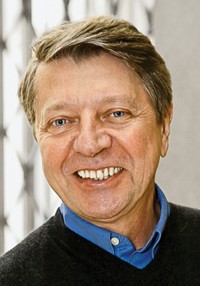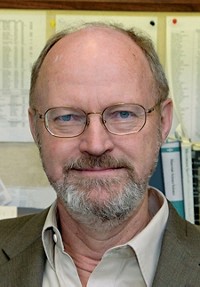Advertisement
Grab your lab coat. Let's get started
Welcome!
Welcome!
Create an account below to get 6 C&EN articles per month, receive newsletters and more - all free.
It seems this is your first time logging in online. Please enter the following information to continue.
As an ACS member you automatically get access to this site. All we need is few more details to create your reading experience.
Not you? Sign in with a different account.
Not you? Sign in with a different account.
ERROR 1
ERROR 1
ERROR 2
ERROR 2
ERROR 2
ERROR 2
ERROR 2
Password and Confirm password must match.
If you have an ACS member number, please enter it here so we can link this account to your membership. (optional)
ERROR 2
ACS values your privacy. By submitting your information, you are gaining access to C&EN and subscribing to our weekly newsletter. We use the information you provide to make your reading experience better, and we will never sell your data to third party members.
People
Trio Receives Wolf Chemistry Prize
Honors: Three professors in the chemical sciences are cited for their work on organic materials
by Linda Wang
June 1, 2011
| A version of this story appeared in
Volume 89, Issue 23
Two chemists and a chemical engineer are the recipients of the 2011 Wolf Prize in Chemistry, awarded by the Wolf Foundation, a nonprofit organization in Israel, to promote science and art for the benefit of mankind. The researchers were honored for their contributions to the synthesis and understanding of organic materials.

Stuart A. Rice, a professor of chemistry at the University of Chicago; Ching Tang, a professor of chemical engineering at the University of Rochester; and Krzysztof Matyjaszewski, professor of chemistry and natural sciences at Carnegie Mellon University, received the $100,000 joint prize during a ceremony on May 29 at the Knesset, in Jerusalem.
According to the Wolf Prize chemistry committee, Rice "has influenced the course of virtually every aspect of contemporary physical chemistry and has shaped its directions broadly and powerfully." Rice's investigations into the properties of organic solids helped to formulate and characterize such concepts as exciton behaviors, radiationless transitions, charge transport, and intramolecular vibrational relaxation.
Using some of the insights that Rice had gained, Tang created two of the most active fields in organic materials: organic light emitting diodes and organic photovoltaics. Tang also produced the first workable example of a solar photovoltaic based on organic materials.
Matyjaszewski invented the process of atom transfer radical polymerization (ATRP), a method of polymer synthesis that has revolutionized the way macromolecules are made. The committee noted that Matyjaszewski´s research has had tremendous industrial impact "due to the simplicity of ATRP and its power to prepare tailor-made macromolecules for materials applications, with unprecedented specificity and efficiency."
The Wolf Prizes are sometimes referred to as the Israeli Nobels. In addition to the chemistry prize, awards are given annually in agriculture, mathematics, medicine, physics, and the arts. The Wolf Prizes were established by the late German-born inventor, diplomat, and philanthropist Ricardo Wolf.






Join the conversation
Contact the reporter
Submit a Letter to the Editor for publication
Engage with us on Twitter